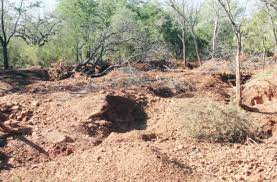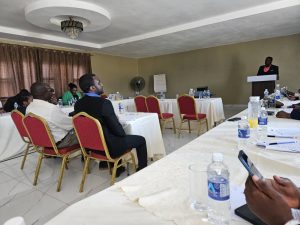Macdonald Mudzaki
Zimbabwe is in the process of reviewing the Environmental Management Agency (EMA) Act, the Minister of Environment, Climate, Tourism and Hospitality Industry Mangaliso Ndlovu has said.
This is meant to align the Act, which is over 20-years-old, to the Constitution of the country and to also catch up with modern environmental management trends.
Speaking at an environmental management workshop in Bulawayo recently, Ndlovu said the review comes at a time when the country faces serious challenges pertaining to climate change.
“The review of the Environmental Management Agency Act has been necessitated by two key developments namely, the need to align it to the Constitution of Zimbabwe, and secondly to update it in line with modern trends in environmental management, bearing in mind that the EMA Act was enacted almost two decades ago,” said Ndlovu.
The Environmental Management Agency (EMA) is barely equipped for the work at hand, and has on many occasions demonstrated subservience to the political interests of the government, at great expense to proper environmental management.
There are accusations that matters relating to the mining interests of Chinese companies and ruling party associates are seldom subjected to meaningful environmental regulation.
Ndlovu said there was now an imminent need for a well-equipped and functional environmental regulator as the environmental dialogue was taking center stage.
“Poor waste management has gotten so bad that the government instituted the national clean-up campaigns. It now time to set up a legal framework that ensures sustainability of the programme, and ensures effective enforcement and deterrent sentences,” said Ndlovu.
He said they were going to revisit the process for the issuance of Environmental Impact Assessment (EIA) documents to ascertain whether they were in line with internationally-recognized best practices.
“There is need to critically review the EIA processes and evaluate whether they remain in sync with the best practices, including cost-effectiveness. We need to ensure that rehabilitation and environmental restoration is done and done effectively.
“Failure to do that now would mean that the country is accumulating an environmental debt for future generations,” Ndlovu said.
Zimbabwe still clings on to old and archaic statutes which are yet to be aligned to the country’s national constitution.
Environmental protection and conservation remains on the bottom of the priority list in many African countries despite them being on the frontline of climate change.
This report was made possible through support from WAN-IFRA Media Freedom’s Strengthening African Media Programme: Climate Change and Environmental Reporting. Views expressed here do not belong to WAN-IFRA.






